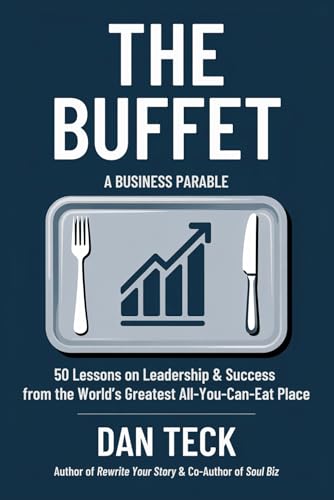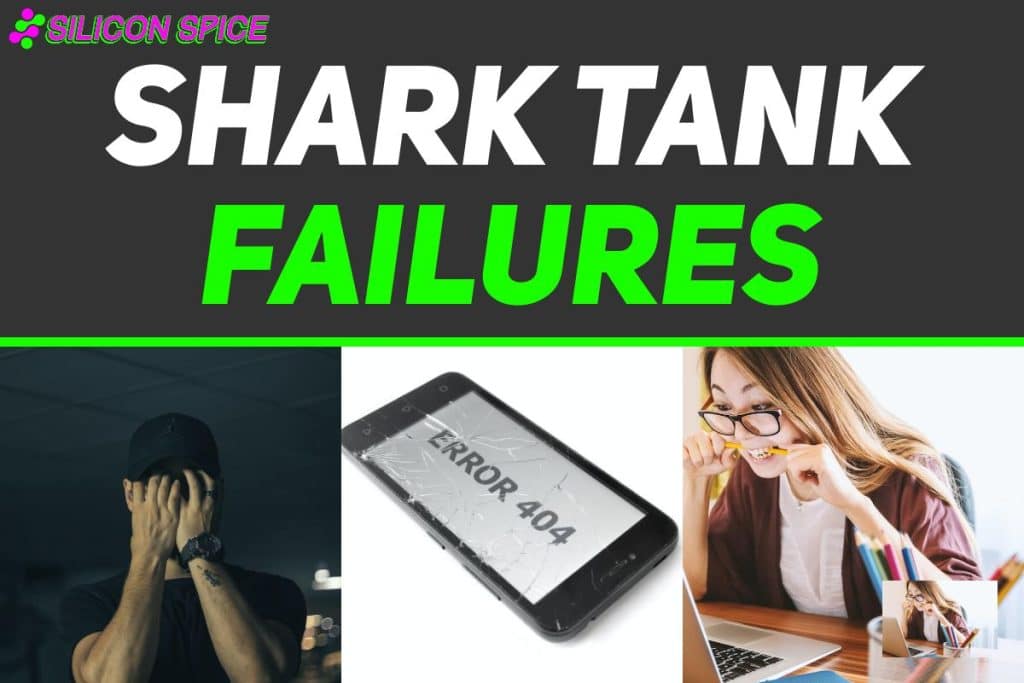When GeoOrbital Wheel pedaled its way into the Shark Tank, it turned heads with its innovative approach to electric biking. The concept was simple yet revolutionary: a wheel that could transform any standard bicycle into an electric one in just minutes. But what’s happened since they struck a deal with one of the sharks?
Fans and potential customers alike have been eagerly awaiting updates. They’re curious about how the company has fared in the shark-infested waters of business. Has GeoOrbital managed to revolutionize the way we bike, or have they encountered bumps on the road? Let’s dive into the latest on GeoOrbital Wheel’s journey post-Shark Tank.
The Pitch: GeoOrbital Wheel’s Shark Tank Experience
When GeoOrbital Wheel took to the Shark Tank stage, they brought with them not just their revolutionary electric bike wheel but also an air of optimism. They were ready to showcase how their product could change the biking world. In Season 8, Episode 22, the inventors presented their game-changing electric bike wheel, seeking an investment to scale their operations and expand their market reach.
Their pitch was both ambitious and convincing. They demonstrated how the GeoOrbital Wheel could effortlessly transform any traditional bicycle into an electric one in just 60 seconds. This innovation was not only aimed at bike enthusiasts but also at daily commuters looking for more efficient, eco-friendly modes of transportation. The GeoOrbital Wheel boasted speeds up to 20 mph and a battery life that could cover significant distances on a single charge.
The sharks were visibly impressed by the demonstration and the potential market impact. However, as the negotiations unfolded, the atmosphere became tense. The entrepreneurs were asking for $500,000 in exchange for a 10% equity stake in their company, valuing their venture at a whopping $5 million.
| Ask | Equity | Valuation |
|---|---|---|
| $500,000 | 10% | $5 million |
Despite the strenuous negotiations, they managed to ignite interest among the sharks. This segment of their journey not only highlighted the innovative prowess of GeoOrbital Wheel but also their unwavering belief in their product’s potential to revolutionize biking. Whether they secured the deal or not, their appearance on Shark Tank marked a significant milestone in their entrepreneurial journey, propelling their visibility and affirming their commitment to sustainable mobility solutions.
An Innovative Solution: The GeoOrbital Wheel
In an episode that had Shark Tank fans and cycling enthusiasts on the edge of their seats, the GeoOrbital Wheel made quite the entrance. With its promise to revolutionize urban commuting, it didn’t just capture the imagination of the viewers but also piqued the interest of the Sharks. The wheel’s inventors introduced their product as a game-changer in sustainable transportation, aiming to make biking more accessible and fun.
The GeoOrbital Wheel, with its plug-and-play design, can transform any standard bicycle into an electric bike in under a minute. Its appeal lies not just in the ease of installation but also in its performance features. The wheel allows for speeds up to 20 mph and can cover a distance of approximately 20 to 50 miles on a single charge, depending on the model. This innovative gadget was designed to cater to both seasoned cyclists and those who might be looking for a less physically demanding mode of transport.
Not only does the GeoOrbital Wheel promote an eco-friendly mode of transportation, but it also encourages more people to consider biking as a viable alternative to driving. The creators behind this invention are driven by their commitment to reducing carbon footprints and making cities more livable. After their appearance on Shark Tank, the team has been working tirelessly to improve their product, focusing on extending battery life and enhancing the overall user experience.
As their journey continues, the team behind GeoOrbital remains dedicated to pushing the boundaries of what’s possible in the realm of sustainable mobility. With each innovation, they’re bringing us one step closer to a future where city commuting is not only efficient but also environmentally responsible. For fans of Shark Tank and supporters of green technology, the progress of GeoOrbital is particularly exciting to watch.
Striking a Deal: The Sharks’ Investment
When the GeoOrbital team pedaled onto the Shark Tank stage, they weren’t just showcasing an innovative product; they were presenting a solution to a common problem in urban mobility. The pitch caught the attention of several Sharks, intrigued by the potential to transform everyday bicycles into electric ones swiftly.
The inventors asked for $120,000 in exchange for 10% of their company, valuing GeoOrbital at a cool $1.2 million. The room buzzed with questions and calculations as the Sharks evaluated the deal’s viability. Michael Burtov, the CEO, confidently addressed each query, emphasizing the product’s unique design, the burgeoning market for eco-friendly transportation, and the already impressive sales figures.
| Asking Investment | $120,000 for 10% |
|---|---|
| Valuation | $1.2 Million |
After a compelling demonstration and a rigorous Q&A session, the Sharks began to reveal their interest. The air was electric with anticipation: Who would make an offer and would it meet the team’s expectations?
Barbara Corcoran was the first to bite, seeing the potential in the GeoOrbital Wheel to revolutionize how people think about biking and commute. She offered $120,000 but asked for a 15% equity stake, more than the team initially proposed.
Despite the counteroffer, the GeoOrbital team recognized the value of having a Shark like Barbara on board. Her expertise in growing businesses and her extensive network could propel GeoOrbital to new heights. After a moment of consideration and a brief huddle, they decided to strike a deal with Barbara, cementing a partnership that promised to accelerate their journey towards making biking more accessible and fun for everyone.
The partnership between GeoOrbital and Barbara Corcoran was a significant milestone for the company. It not only provided them with the necessary capital to expand but also access to strategic advice and connections. With this backing, GeoOrbital was poised for even greater innovation and market penetration.
Post-Shark Tank Success: How GeoOrbital Wheel Has Fared
Since its appearance on Shark Tank, GeoOrbital has experienced a notable surge in popularity and business growth. Their innovative electric bike wheel concept has not only caught the eye of Barbara Corcoran but also that of consumers eager for a more efficient and eco-friendly mode of transportation. The deal they struck with Barbara has proven to be only the beginning of their success.
Sales and Expansion
Following the show, GeoOrbital’s sales skyrocketed, demonstrating the power of the Shark Tank effect. The company quickly went to work to meet the increased demand, scaling up production and expanding their distribution channels both online and in retail stores. They’ve made significant strides in improving the product’s design and functionality, based on customer feedback and ongoing research and development efforts.
Product Line Diversification
One of the key strategies GeoOrbital has employed post-Shark Tank is diversifying their product line. They’ve introduced new models of their wheel, catering to different bike types and consumer needs. This expansion has allowed them to tap into a broader market segment, appealing to both casual riders and serious cyclists alike.
Partnerships and Collaborations
GeoOrbital didn’t stop at product development; they also sought out strategic partnerships and collaborations. By teaming up with bike shops, cycling organizations, and even tech companies, they’ve broadened their reach and reinforced their brand presence in the cycling community. These partnerships have not only expanded their sales channels but also opened up opportunities for innovative collaborations, further solidifying GeoOrbital’s position as a leader in the electric bike space.
Their journey showcases the potential of Shark Tank investments and the entrepreneurial spirit. GeoOrbital’s ongoing pursuit of improvement and expansion illustrates their commitment to making biking more accessible and enjoyable for everyone.
Customer Response: Expectations vs. Reality
Following the GeoOrbital Wheel’s unforgettable appearance on Shark Tank, customer expectations were sky-high. Fans and cycling enthusiasts alike were captivated by the promise of transforming any regular bicycle into an electric one in just seconds. This revolutionary idea not only garnered immense interest but also set a high bar for the product’s performance and usability.
Feedback from the GeoOrbital community has been a mix of awe and constructive criticism. Customers were thrilled with the ease of installation and the immediate boost in commuting efficiency. The concept of not purchasing an entirely new e-bike but instead upgrading their beloved classic bicycle resonated well with the eco-conscious segment of their clientele. However, real-world usage brought to light some areas needing refinement. Battery life and the weight of the wheel were common points of feedback. GeoOrbital took these insights seriously, continually working on enhancing their product to meet and exceed user expectations.
What stood out was the company’s openness to customer feedback. Engaging directly with their community through forums and social media, GeoOrbital showcased their dedication to improvement. This transparent dialogue between the company and its customers emphasized their commitment to not just selling a product but fostering a movement towards more sustainable and accessible urban transportation.
Moreover, the diversification of their product line to include different wheel sizes and improvements in battery technology displayed their response to the varied needs and critiques. The evolution of the GeoOrbital Wheel is a testament to the company’s agility and responsiveness to both the praises and the pitfalls pointed out by their early adopters.
As more people hop onto the idea of converting their bicycles into electric ones, GeoOrbital continues to refine their offerings, ensuring that the reality of owning a GeoOrbital Wheel not only meets but exceeds the initial expectations stirred by their Shark Tank debut.
Challenges on the Road: GeoOrbital Wheel’s Obstacles
Despite GeoOrbital Wheel’s exciting journey post-Shark Tank, the road hasn’t been without its bumps. Navigating the manufacturing and supply chain world presented the first major hurdle for the team. Scaling up production meant dealing with delayed shipments, quality control issues, and the constant need for supplier negotiation. As a startup, these challenges were daunting but the GeoOrbital team’s commitment to quality and customer satisfaction meant they were willing to take the time to get it right.
Another significant challenge was staying ahead in a competitive market. With the rise of eco-friendly transportation solutions, GeoOrbital needed to keep innovating to stand out. This meant not just improving their product based on customer feedback but also constantly exploring new technologies and materials to make their wheel lighter, more efficient, and easier to use.
The importance of building a strong brand presence became evident as well. In an age where consumers are bombarded with choices, making the GeoOrbital Wheel a go-to for battery-powered bike conversion required smart marketing strategies and genuine community engagement. They embraced social media, shared customer success stories, and participated in local events to make their presence felt.
On the financial front, managing cash flow while investing in research and development posed its own set of challenges. The initial investment from Shark Tank certainly gave them a boost, but the ongoing need for funds meant the team had to be savvy about budgeting, forecasting, and securing additional investments or loans when necessary.
Balancing these challenges while maintaining the drive to innovate and grow is what makes the GeoOrbital story so compelling to fans and fellow entrepreneurs alike. Their journey offers valuable lessons in perseverance, adaptability, and the importance of listening to your customers.
Looking Towards the Future: GeoOrbital Wheel’s Potential
Since its debut on Shark Tank, GeoOrbital Wheel has captured the imaginations of cycling enthusiasts and green technology supporters alike. With a groundbreaking design that turns any regular bicycle into an electric one, the potential for GeoOrbital to revolutionize the way we commute is immense.
The company’s journey has been an exhilarating ride, filled with ups and downs. They’ve navigated the choppy waters of manufacturing and supply chain challenges, stood their ground in a fiercely competitive market, and adapted their product based on invaluable customer feedback. It’s this resilience and commitment to innovation that shines a bright light on GeoOrbital’s future.
Moving forward, GeoOrbital plans to keep the momentum going. They’re not just sitting back and enjoying the ride. Instead, they’re pedaling harder, pushing the boundaries of what’s possible. Here are a few key areas they’re focusing on:
- Product Diversification and Innovation: GeoOrbital is continuously working on perfecting their design, rolling out new models that cater to an even wider audience. They’re dedicated to making their wheels lighter, faster, and more efficient.
- Strategic Partnerships: By collaborating with bike manufacturers and retailers, GeoOrbital aims to increase its market penetration. These partnerships could introduce their revolutionary wheel to cyclists who may not have heard of it yet.
- Global Expansion: The company has its sights set on breaking into new markets outside the United States. There’s a huge potential for growth internationally, especially in cities that are encouraging cycling as a sustainable form of transport.
As fans of Shark Tank and enthusiasts of innovative products, we’re all rooting for GeoOrbital. Their journey embodies the spirit of entrepreneurship — it’s about taking a simple idea and pedaling it towards success, one electric spin at a time. The road ahead looks promising, and if their past achievements are anything to go by, GeoOrbital is on its way to transforming urban mobility around the world.
Conclusion: GeoOrbital Wheel’s Impact on the Electric Biking Industry
GeoOrbital Wheel has made significant strides in the electric biking industry since its Shark Tank debut. With Barbara Corcoran’s backing, they’ve not only scaled up but also faced and overcome numerous challenges. Their commitment to innovation and customer feedback has fueled their growth and product diversification. As they continue to navigate the competitive landscape, their focus remains on expanding their global footprint and enhancing urban mobility. GeoOrbital’s journey is a testament to the power of entrepreneurship and innovation in transforming the way we move.
Frequently Asked Questions
What is GeoOrbital?
GeoOrbital is a company that gained fame on Shark Tank, known for their innovative wheel design that transforms standard bicycles into electric bikes. Their product, the GeoOrbital wheel, allows for an easy upgrade to electric power, enhancing urban mobility.
How did GeoOrbital change after Shark Tank?
Following their Shark Tank appearance and deal with Barbara Corcoran, GeoOrbital experienced significant growth. They increased production, expanded distribution, improved their product based on customer feedback, introduced new models, and forged strategic partnerships.
What challenges has GeoOrbital faced?
GeoOrbital has navigated challenges including scaling manufacturing and supply chains, staying competitive, building a brand, and managing cash flow while investing in innovation and development.
What makes GeoOrbital stand out in the market?
GeoOrbital’s unique proposition lies in their wheel that easily converts traditional bikes into electric ones, combined with their commitment to customer feedback, product improvement, and expansion in a competitive market.
What are GeoOrbital’s future plans?
GeoOrbital aims to focus on diversifying their product line, forging strategic partnerships, and expanding globally. They seek to innovate their designs, launch new models, partner with bike manufacturers, and enter new markets to redefine urban mobility.










